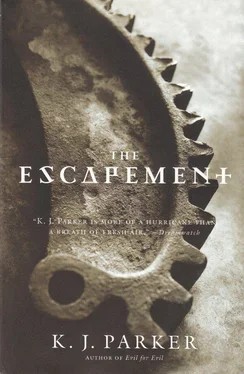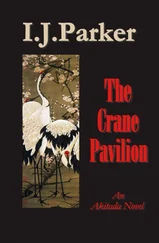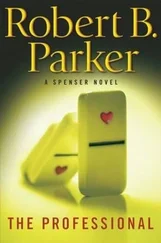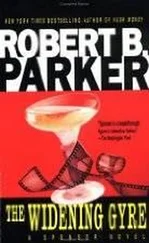K Parker - The Escapement
Здесь есть возможность читать онлайн «K Parker - The Escapement» весь текст электронной книги совершенно бесплатно (целиком полную версию без сокращений). В некоторых случаях можно слушать аудио, скачать через торрент в формате fb2 и присутствует краткое содержание. Жанр: Фэнтези, на английском языке. Описание произведения, (предисловие) а так же отзывы посетителей доступны на портале библиотеки ЛибКат.
- Название:The Escapement
- Автор:
- Жанр:
- Год:неизвестен
- ISBN:нет данных
- Рейтинг книги:4 / 5. Голосов: 1
-
Избранное:Добавить в избранное
- Отзывы:
-
Ваша оценка:
- 80
- 1
- 2
- 3
- 4
- 5
The Escapement: краткое содержание, описание и аннотация
Предлагаем к чтению аннотацию, описание, краткое содержание или предисловие (зависит от того, что написал сам автор книги «The Escapement»). Если вы не нашли необходимую информацию о книге — напишите в комментариях, мы постараемся отыскать её.
The Escapement — читать онлайн бесплатно полную книгу (весь текст) целиком
Ниже представлен текст книги, разбитый по страницам. Система сохранения места последней прочитанной страницы, позволяет с удобством читать онлайн бесплатно книгу «The Escapement», без необходимости каждый раз заново искать на чём Вы остановились. Поставьте закладку, и сможете в любой момент перейти на страницу, на которой закончили чтение.
Интервал:
Закладка:
He was desperately tired, but he couldn't get into bed, not with her there. He leaned back in his chair, lifted the mantle off the lamp and crushed the flame to death between thumb and forefinger.
They said that the Vadani duke had married the widow of the Eremian duke, who he'd had killed on some flimsy pretext. You didn't need to be a politician or a diplomat to figure that one out. It's love that makes the world go round, they said; also, that the Vadani duke had only brought his duchy into the war for her sake. And then he'd married a princess of the savages, and when she'd been killed by the Republic's cavalry in some skirmish, that meant the savages were in the war too, and now the City needed a million shovels double quick, to dig a hole to hide in.
(I did all that, he thought. For love.)
He closed his eyes. He'd be asleep in no time; and then he'd wake up with a crick in his neck from sleeping all night in a chair, because he couldn't bring himself to share a bed with the woman he loved.
They said Ziani Vaatzes must be mad, to have done all those dreadful things and brought disaster down on the City. Well; they were quite right, for once. And it never rains but it pours, and it's always darkest before dawn, and every cloud has a silver lining, and sooner or later everybody falls in love with the foreman's daughter. All perfectly true.
So he closed his eyes, but it was a while before he fell asleep; his mind was still crowded with numbers and sums, bits of random information, facts he preferred not to face, things he wished he didn't know. Just before the confusion in his head exhausted itself and faded into sleep, a question formed; one that he hadn't ever considered before, and yet unless it was answered, nothing in the whole wide world could ever possibly make sense again. It flared up like the last ember of a sleepy fire, burned itself out and faded, and then he slept…
Why did Ziani make the thing in the first place? She wasn't there when he woke up. Bright grey light filtered through the window. His neck hurt.
There was the end of a greyish loaf, some white butter, and a thumb's-length of water in the jug. He changed his shirt, put on his coat and left for work.
You could tell the time in the City by the smell. They'd already lit the furnace fires, but the smell was woodsmoke, not the foul, clinging taste of coal, so the kindling hadn't burnt through yet. That meant he was a little bit late, but not enough to feel guilty about. The pavement was sprinkled with black snow, yesterday's soot settled overnight and not yet trodden in. He stopped at the one-eyed man's stall and bought a barley cake and half a dry sausage. The streets were still quiet; the day-shift workers weren't expected to show up until the fires had had a chance to heat up, caking over the forges and bringing the water in the boilers to the simmer.
The factory porter opened the wicket gate for him, and he stepped out of a narrow street into the cloister that led to the main shop.
It wasn't possible, of course; but Falier had always fancied that the roof of the main shop was higher than the sky outside. The City sky always seemed low and cramped, even in the summer heat; now, when the grey clouds crowded in, like stoppers on the bottles whose necks were the City's drop towers and chimneys, you could make yourself believe that if you stood on tiptoe you could reach up and touch it, though you'd want to wipe your hands on something afterwards. Inside, though, it was different. To see the factory roof you had to lean your head right back, your eye drawn upwards along the line of the great wrought-iron pillars, close, straight and tall as pine trees in a forest. Outside, light seeped down through the cloud and the constant blanket of smoke like blood through a bandage. Inside it came in sideways, through the regularly spaced series of tall, narrow windows, so that during the day there were practically no shadows anywhere, and at night the whole place filled up with an orange glow so thick it was practically a liquid.
There was always an hour's break between shifts; enough time for the previous shift's fire to burn off the last of its fuel and die down without letting the brickwork and the tue-irons cool to the point where they'd start to crack. During that hour, the only activity was dragging out the clinker, sweeping up the drifts of scale flakes, oiling and greasing the bearings of the trip-hammers; quiet, careful work, acts of recovery, almost of tenderness. Men hauled buckets of water to fill up the slakes, refilled the coal bins, greased the bellows leathers, generally made good before the destructive effort of the new shift. It was the time of day when the factory was pleasantly warm instead of uncomfortably hot; warm as the bed you leave when you get up to go to work, assuming you didn't spend the night in a chair.
The floor smelt of coal, oily water, wet rust and the unmistakable aroma shared by blood and freshly cut steel. On the toolroom side of the shop they were scrambling about on ladders, greasing the overhead shafts and dusting the long loops of drive belt with chalk, for grip. Two old men who'd been old as long as Falier could remember were walking slowly up and down the ranks of machines, filling the oilers from tall copper jugs. At the end of one row a sudden shower of orange sparks blossomed as someone trued up a grinding wheel, adding the scents of carborundum and burnt steel to the mixture. Falier had seen gardens, he'd even been in the grand formal garden in the inner courtyard of the Guildhall, but he'd never found them convincing. Somehow they'd always struck him as pointless attempts to copy the main shop, using trees and shrubs to represent wrought and cast iron.
The superintendent's office was on the eighth level of the galleries that encircled the main shop like the banks of seats in a theatre. Falier climbed the iron spiral staircase, pausing at each level to look down. With a practised eye you could take in the health of the factory at a glance from here, in mid-shift, when the men scurrying about below dwindled out of individuality into flowing shapes of movement. Between shifts, the factory looked like its own schematic, a reduction intended to convey the workings of the machine. Ziani Vaatzes had told him that once he'd been in here when it was completely empty, apart from himself; there had been some reason for it, a total closedown while everything cooled, maybe the only time in its history when it had been entirely still. As he paused on the seventh level, Falier tried to imagine what that must've been like; to be the only living soul in the factory, nothing moving, no sound at all.
He reached his office. It had no door; it'd be pointless, since it'd be open all the time. He dropped the sheaf of costings on his desk, glanced down at the notes left for him overnight. Cracks in the lining of number six furnace; that was bad, since cooling off number six meant damping down five and seven as well. Two of the big capstan lathes in the fifth aisle had shot their bearings and would need stripping right down to rebuild, out of action for two shifts and part of a third. Too much work, Falier told himself; too many shifts and not enough maintenance, and it'll only get worse as the pressure grows. A strong superintendent wouldn't stand for it, no matter what the politicians said. But was he going to tell Necessary Evil that they couldn't have their ten per cent productivity rise? Of course he wasn't. So the machines would wear out and seize, the firebricks would start to crack, output would fall when it should be rising and it'd all be his fault. But not today. And maybe it'd all be academic anyway. Maybe the savages would come and smash the factory to rubble with their home-made trebuchets before the authorities noticed the production slump. You've got to look on the bright side, haven't you?
Читать дальшеИнтервал:
Закладка:
Похожие книги на «The Escapement»
Представляем Вашему вниманию похожие книги на «The Escapement» списком для выбора. Мы отобрали схожую по названию и смыслу литературу в надежде предоставить читателям больше вариантов отыскать новые, интересные, ещё непрочитанные произведения.
Обсуждение, отзывы о книге «The Escapement» и просто собственные мнения читателей. Оставьте ваши комментарии, напишите, что Вы думаете о произведении, его смысле или главных героях. Укажите что конкретно понравилось, а что нет, и почему Вы так считаете.












